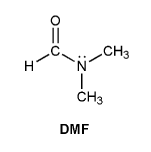

The mass spec of chlorocyclohexane shows a peak at m/z = 83.
Use curved arrows to show the heterolytic cleavage that accounts for this fragment.
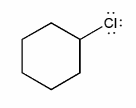
The mass spec of methyl ethyl ether shows peaks at m/z = 45 and 59.
Use hooks to show the alpha cleavages that result in these two fragments.

The mass spec of 4-nonanone shows peaks at m/z = 58, 71, 86, 99.
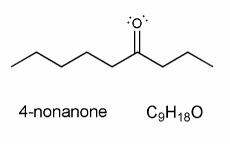
Using curved arrows or hooks, show how each of these fragments can form via alpha cleavage or the McLafferty rearrangement. (and draw the structure of the indicated species in the appropriate box).
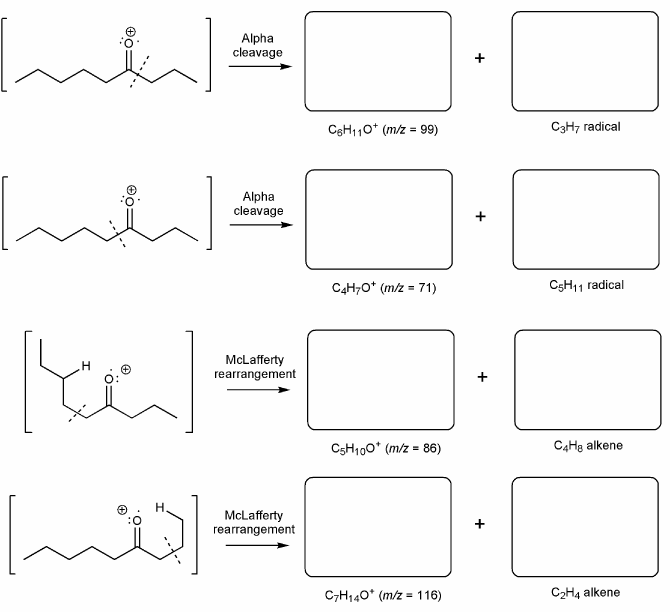
Using your knowledge of 1H NMR, predict the NMR spectrum for the compound below. (draw out the spectrum you would expect to see). Be sure to include:
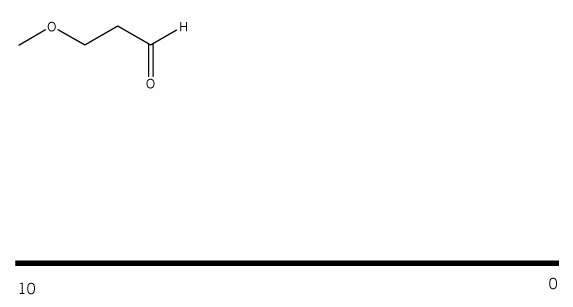
The proton NMR of cyclohexane gives only one peak when the NMR is run at room temperature.
But when the temperature is lowered to -100 ºC the proton NMR spectrum shows two peaks. Explain.
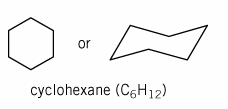
The 1H and 13C NMR spectra of a compound with chemical formula C10H14O are shown below. The compound's IR spectrum shows a broad peak at 3,300 cm-1. Determine the structure of this compound.
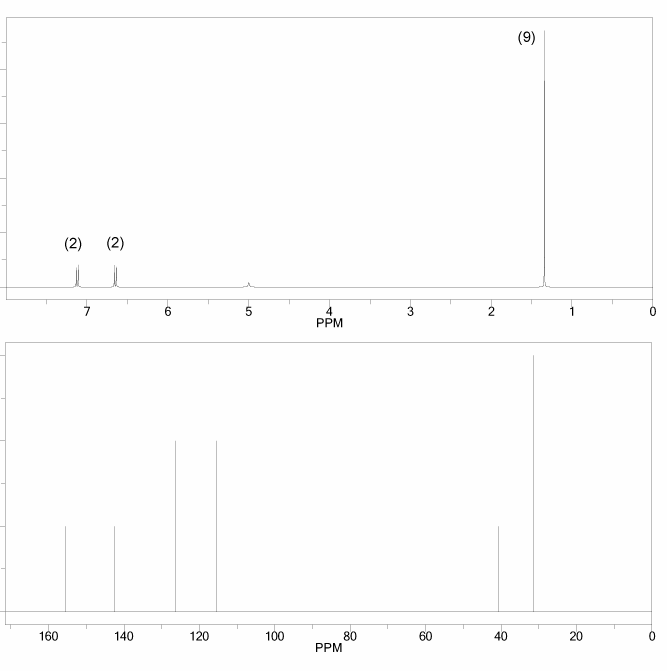
The 1H and 13C NMR spectra of a compound with chemical formula C4H6O2 are shown below. The compound's IR spectrum shows a sharp peak at 1,700 cm-1. Determine the structure of this compound.
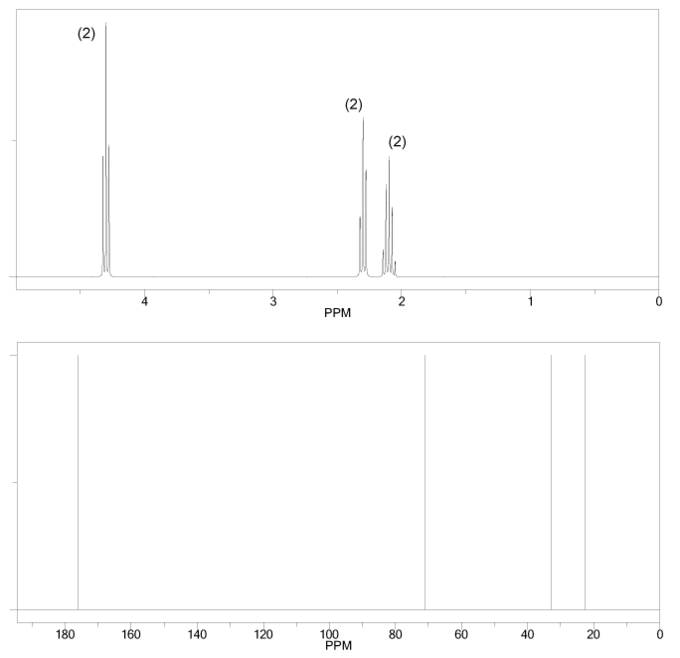
The 1H and 13C NMR spectra of an unknown compound are shown below. The compound's mass spectrum shows a molecular ion with m/z ratio of 86. Determine the structure of this compound.
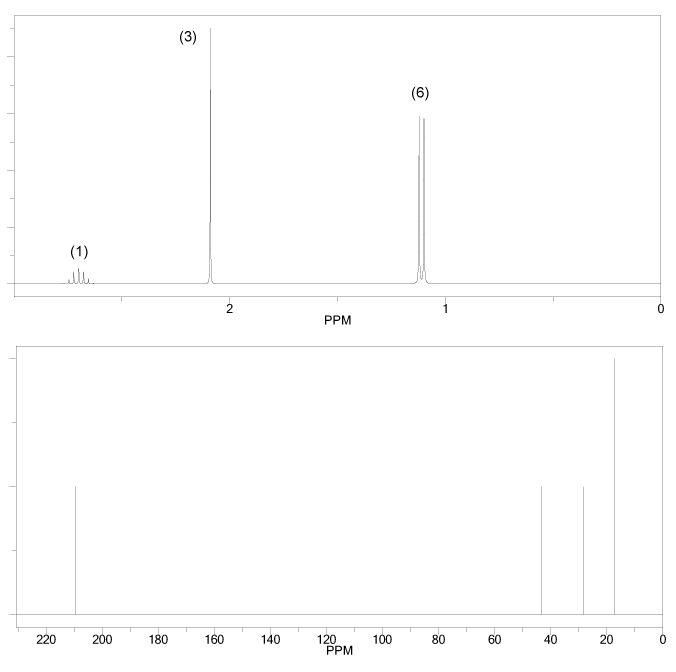
The 1H and 13C NMR spectra of an unknown compound are shown below. The compound's mass spectrum shows a molecular ion with m/z ratio of 122. Determine the structure of this compound.
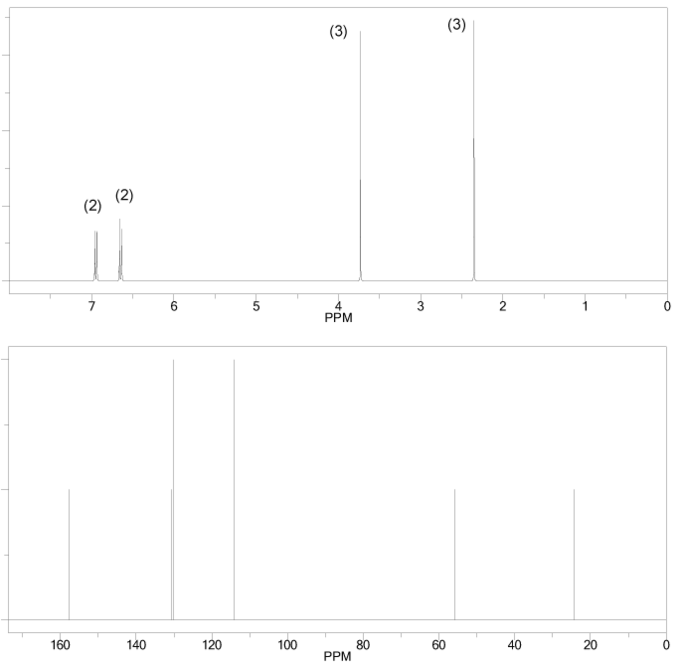
Compound A has molecular formula C6H12O and shows a sharp peak at 1,710 cm-1 in its IR spectrum.
Treatment with 1 equivalent of phenyl Grignard yields compound B, which has formula C12H18O and whose IR shows a broad peak at 3,350 cm-1.
Compound B's 1H NMR spectrum is shown below. Determine the structures of compounds A and B.
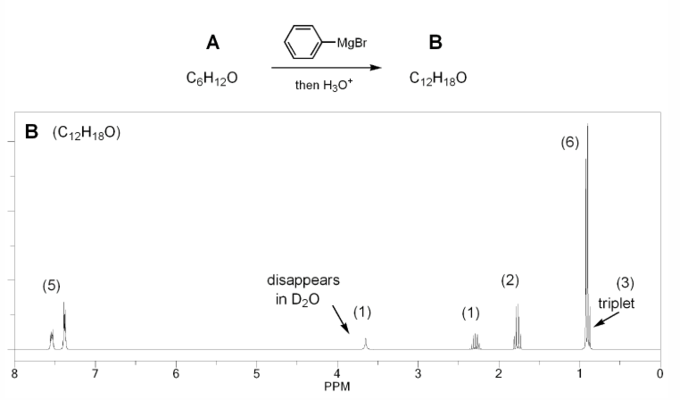
Compound A (C5H12O) is oxidized using aqueous chromium (Jones reagent) to compound B (C5H10O2), which is then treated with methanol under acidic conditions to yield compound C (C6H12O2) and water.
The 1H NMR of compound C is shown below. Determine the structures of compounds A, B, and C.
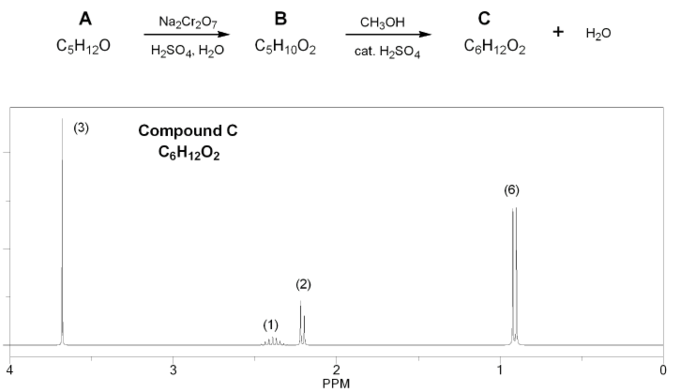
N,N-dimethylformamide (DMF) is shown below. Based on its structure, you might expect to see only one -CH3 signal in the 1H NMR spectrum. But instead DMF shows two different -CH3 signals. Explain.
